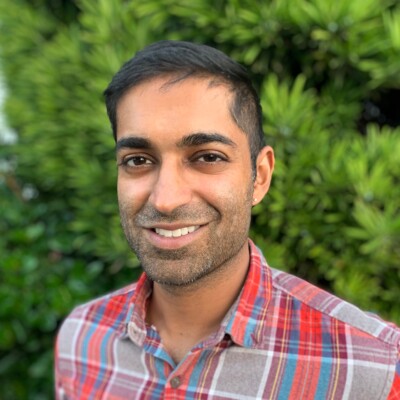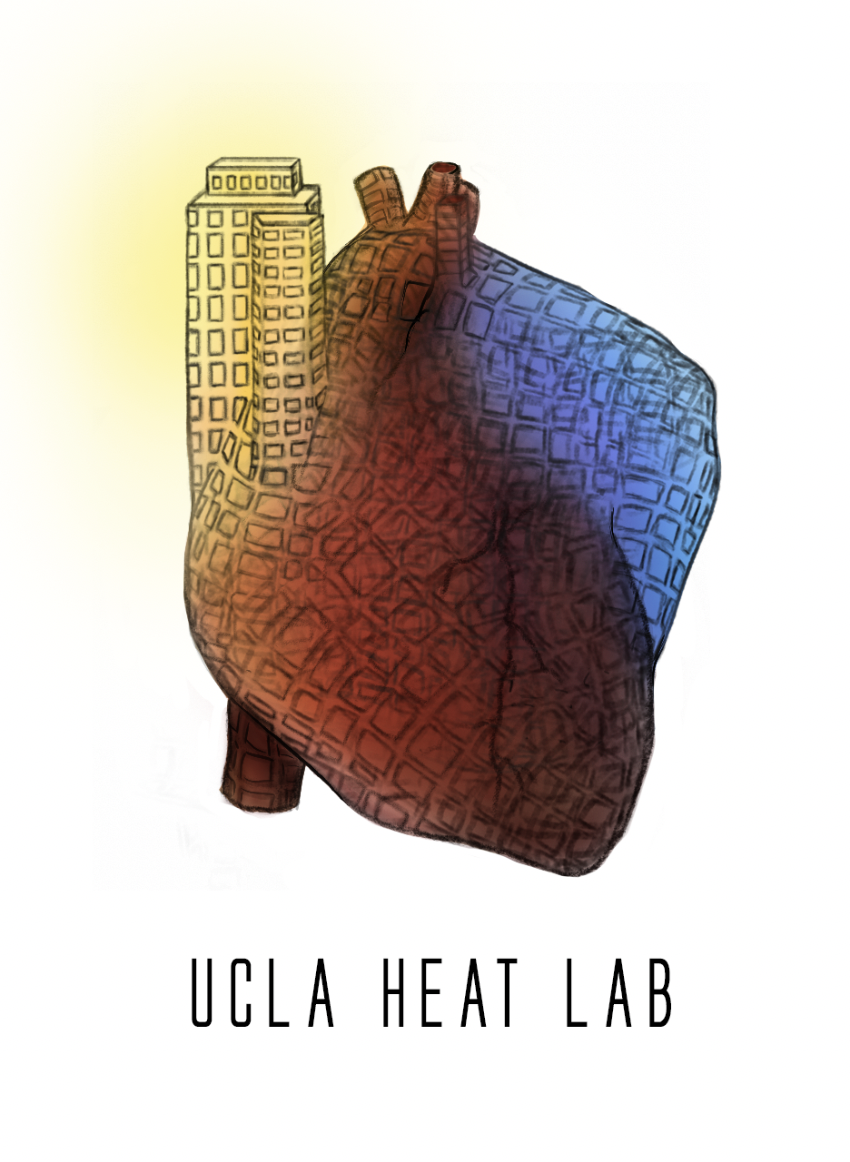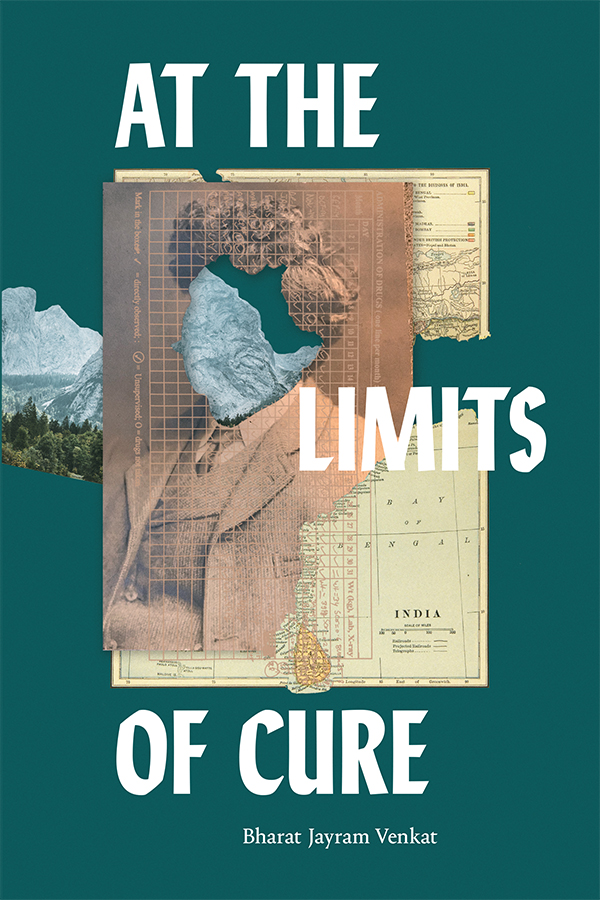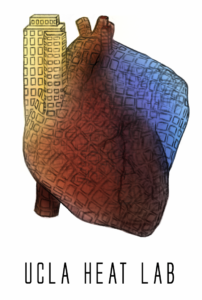
Bharat Venkat

2014 Ph.D., Anthropology, University of California, Berkeley
2007 M.A., Cultural and Social Anthropology, Stanford University
2006 B.A., Cultural and Social Anthropology, Stanford University
Dr. Bharat Jayram Venkat is an Associate Professor at UCLA with a joint appointment spanning the Institute for Society & Genetics, the Department of History, and the Department of Anthropology. He is also affiliated with the UCLA Center for India & South Asia, the Program in Digital Humanities, the Urban Humanities Initiative, and the Luskin Center for Innovation. His research focuses on a range of issues related to science, medicine, climate, race, and design.
 His first book, At the Limits of Cure (Duke University Press, 2021; Bloomsbury India, 2022), is the winner of three book awards: the RAI Wellcome Medal (from the Royal Anthropological Institute and the Wellcome Trust), the Edie Turner Book Prize for Ethnographic Writing (from the Society for Humanistic Anthropology), and the Joseph W. Elder Prize in the Indian Social Sciences (from the American Institute of Indian Studies). It was also shortlisted for the British Association for South Asian Studies Book Prize and longlisted for the British Society for the History of Science Hughes Prize.
His first book, At the Limits of Cure (Duke University Press, 2021; Bloomsbury India, 2022), is the winner of three book awards: the RAI Wellcome Medal (from the Royal Anthropological Institute and the Wellcome Trust), the Edie Turner Book Prize for Ethnographic Writing (from the Society for Humanistic Anthropology), and the Joseph W. Elder Prize in the Indian Social Sciences (from the American Institute of Indian Studies). It was also shortlisted for the British Association for South Asian Studies Book Prize and longlisted for the British Society for the History of Science Hughes Prize.
Through an historical and ethnographic study of tuberculosis treatment in India, this book asks: what does it mean to be cured, and what does it mean for a cure to come undone? Venkat details the unraveling of cure across a variety of sites: in idyllic hill stations and crowded prisons, aboard ships and on the battlefield, and through research trials and clinical encounters. In confronting our present moment—marked by fading antibiotic efficacy—this work argues that cures have almost never been as final as we might hope. This research was funded by the American Council for Learned Societies, the Social Science Research Council, the Wenner-Gren Foundation, the Charlotte W. Newcombe Foundation, and the American Institute for Indian Studies.
Dr. Venkat current book project—tentatively titled Swelter: A History of Our Bodies in a Warming World— is about thermal inequality, the history of heat, and the fate of our bodies in a swiftly warming world riven by inequality.This book reflects on the existential and planetary crisis posed by extreme heat, but from the perspective of our bodies as they experience this crisis. Through a surprising history that connects beer and bananas to heat stress experiments on soldiers and segregation in American cities, Swelter traces the lines that connect body heat to global warming. In our age of anthropogenic climate change, this work argues that the science of climate and the science of the body can no longer be held apart—if they ever could. Swelter will be published by Crown in the United States, and Picador in the United Kingdom.
Dr. Venkat’s research on thermal inequality has been funded by the Berggruen Foundation, the George A. and Eliza Gardner Howard Foundation Fellowship, the UC President’s Faculty Research Fellowship in the Humanities, and a five-year National Science Foundation (NSF) Career Award, which is the NSF’s most prestigious award in support of early-career faculty.
 Dr. Venkat is also the founding director of the UCLA Heat Lab, a diverse team of undergraduate and graduate students that investigates thermal inequality from a variety of disciplinary perspectives, ranging from biology and history to anthropology and urban planning. Students in the lab have worked on an assortment of projects across Los Angeles, such as eliciting oral histories about thermal experience in Watts and measuring the occupational heat exposure of food truck workers in Westwood. In collaboration with the UCLA TIE-INS Program, the Lab has also developed and taught climate literacy curriculum for elementary and high school students in the LA Unified School District (LAUSD). In recognition of his teaching and mentorship, Dr. Venkat was awarded both the Excellence in Educational Innovation Award (from the UCLA Life Sciences Division) and the Carole H. Browner Student Mentorship Award (from the Society for Medical Anthropology).
Dr. Venkat is also the founding director of the UCLA Heat Lab, a diverse team of undergraduate and graduate students that investigates thermal inequality from a variety of disciplinary perspectives, ranging from biology and history to anthropology and urban planning. Students in the lab have worked on an assortment of projects across Los Angeles, such as eliciting oral histories about thermal experience in Watts and measuring the occupational heat exposure of food truck workers in Westwood. In collaboration with the UCLA TIE-INS Program, the Lab has also developed and taught climate literacy curriculum for elementary and high school students in the LA Unified School District (LAUSD). In recognition of his teaching and mentorship, Dr. Venkat was awarded both the Excellence in Educational Innovation Award (from the UCLA Life Sciences Division) and the Carole H. Browner Student Mentorship Award (from the Society for Medical Anthropology).
Dr. Venkat and his team have been interviewed about their research for a range of media outlets, including CBS News, USA Today, NPR, the Associated Press, NBC, the Guardian (UK), La Nación (Argentina), New Indian Express (India), Eater LA, Spectrum News, Grist, and UCLA’s own Daily Bruin, amongst others.
Dr. Venkat has published extensively in both academic journals and public-facing venues. His work on science and medicine includes essays on ethical reasoning in the clinic, the history of evidentiary paradigms in antibiotic research, the idea of radical cure, extreme drug resistance in India, the history and possible future of the sanatorium, iatrogenesis and zoonotic disease, the idea of a TB-free India, the near impossibility of cure, and the graphic imagination of triage in the face of antibiotic failure.
His published work on heat includes essays on anthropological approaches to studying heat, how colonial-era knowledge about climate was produced through racialized bodies, the relationship between redlining and thermal inequality, the visualization of race and heat in literature and film, the effects of heat on food truck workers, and why thermal comfort has been largely organized around the needs of men in suits.
Prior to arriving at UCLA, Dr. Venkat held a postdoctoral fellowship at Princeton University’s Global Health Program and was an Assistant Professor in the Department of Anthropology at the University of Oregon. Due to the unexpected proximity of his office in Oregon to the archives for Rajneeshpuram (an intentional community/“cult”), he has also written a really fun essay on the relationship between immigration law, sham marriage, and the study of cults.
You can find much of his work collected here.


